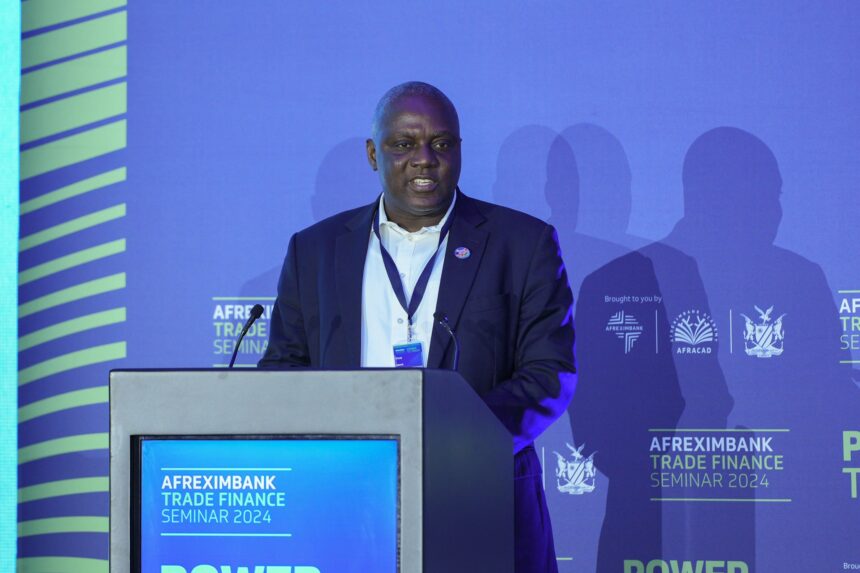Titus Ndove, the executive director in the finance ministry, recently highlighted the critical need for Africa to enhance its trade dynamics, particularly through the African Continental Free Trade Area (AfCFTA).
He was speaking during the opening of the 24th annual Trade Finance and Factoring Seminar in Windhoek on Tuesday.
It is the first time that the seminar is being hosted in Namibia by the African Export-Import Bank (Afreximbank)
He noted that Africa accounts for only 3% of global trade, and suffers from low intra-African trade levels, primarily dominated by raw material exports.
“We will only improve when we start adding value to our resources,” he asserted.
Afreximbank is a Pan-African multilateral financial institution mandated to finance, facilitate and promote intra and extra-African trade.
The four-day seminar aims to address critical trade finance trends, and provide training on innovative strategies to enhance Africa’s trade landscape.
The AfCFTA secretariat and the bank have created a US$10 billion adjustment fund to support countries to effectively participate in the AfCFTA.
By the end of December 2023, intra-African trade was reported at 14.4% of total African exports, with Namibia achieving an impressive 52% in intra-African exports, mainly within the Southern African Customs Union.
Haytham El Maayergi, executive vice president of the Global Trade Bank at Afreximbank, echoed Ndove’s sentiments, and projected significant growth for Africa by 2050.
“Africa is facing a staggering import bill of US$100 billion for food alone,” he stated.
This underscores the continent’s potential for development.
He criticised the prevailing export patterns, where countries sell high-quality raw materials at low prices, only to import processed goods at much higher costs. “You have no idea the multiplier that we are losing by not just doing the next value-addition that we should be doing,” he added.
He emphasised Afreximbank’s commitment to supporting African nations in harnessing their natural resources for development.
He urged countries to embrace digitalisation to remain competitive in a rapidly-evolving global economy.
“It is time for Africa to leverage digitalisation, and avoid the case of chasing the situation because the world is moving,” he stated.
Namibia mandated the prohibition of the export of certain critical minerals such as unprocessed crushed lithium ore, cobalt, manganese, graphite and rare earth elements.
Cabinet considered and endorsed a maximum export quantity of 1 000 kilogrammes for mineral analyses per annum per exporter/producer.
In addition, it considered and endorsed a maximum of up to 20 000 tonnes for plant design parameters.
In a goodwill message at the event, Marsorry Ickua, officer in charge at the Bank of Namibia, highlighted the transformative potential of digital solutions in trade processes.
“Apart from tariffs, non-tariff barriers are crucial impediments to trade facilitation on the African continent,” he remarked.
He advocated for the elimination of these barriers to maximise the benefits of AfCFTA.
The discussions reflect a growing consensus among African leaders and financial institutions on the necessity of enhancing intra-African trade through value-addition and digital transformation.
The AfCFTA is seen as a pivotal initiative that could significantly increase intra-African trade projected to rise by 33%, and reduce trade deficits across the continent. Experts believe that by focusing on industrialisation and regional value chains, Africa can leverage its abundant resources, and create sustainable economic growth opportunities.



